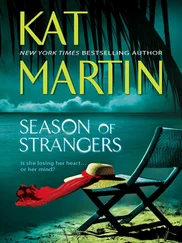“Bruno!”
Perhaps behind one of the wallowing mountains. He threshed on, then realized he was directionless. A wave bashed the side of his head. He cursed the gigantic, ugly body of the sea. Where was his friend, his brother?
He went down again, deep as he could, spreading his ridiculous length as wide as he could. But now there seemed nothing but a silent gray vacuum filling all space, in which he was only a tiny point of consciousness. The swift, unbearable loneliness pressed him closer, threatening to swallow his own life. He stretched his eyes desperately. The grayness became a brown, ridged floor.
“Did you find him?” he blurted, raising himself up. “What time is it?”
“Lie still, Guy,” Bob’s voice said.
“He went down, Guy,” Anne said. “We saw him.”
Guy closed his eyes and wept.
He was aware that, one by one, they all went out of the bunkroom and left him, even Anne.
Forty-six
Carefully, so as not to awaken Anne, Guy got out of bed and went downstairs to the living room. He drew the drapes together and turned on the light, though he knew there was no shutting out the dawn that slithered now under the Venetian blinds, between the green drapes, like a silvery-mauve and amorphous fish. He had lain upstairs in the darkness awaiting it, knowing it would come for him finally over the foot of the bed, fearing more than ever the grip of the mechanism it set in motion, because he knew now that Bruno had borne half his guilt. If it had been almost unbearable before, how would he bear it now alone? He knew that he couldn’t.
He envied Bruno for having died so suddenly, so quietly, so violently, and so young. And so easily, as Bruno had always done everything. A tremor passed through him. He sat rigidly in the armchair, his body under the thin pajamas as hard and tense as in the first dawns. Then on the spasmic snap that always broke his tension, he got up and went upstairs to the studio before he actually knew what he intended to do. He looked at the big sleeksurfaced sheets of drawing paper on his work table, four or five lying as he had left them after sketching something for Bob. Then he sat down and began to write from the upper left-hand corner across, slowly at first, then more and more rapidly. He wrote of Miriam and of the train, the telephone calls, of Bruno in Metcalf, of the letters, the gun, and his dissolution, and of the Friday night. As if Bruno were still alive, he wrote every detail he knew that might contribute to an understanding of him. His writing blackened three of the big sheets. He folded the sheets, put them into an oversized envelope, and sealed it. For a long while he stared at the envelope, savoring its partial relief, wondering at its separateness now from himself. Many times before he had written passionate, scribbled admissions but, knowing no one would ever see them, they had never really left him. This was for Anne. Anne would touch this envelope. Her hands would hold the sheets of paper, and her eyes would read every word.
Guy put his palms up to his own hot, aching eyes. The hours of writing had tired him almost to a point of sleepiness. His thoughts drifted, resting on nothing, and the people he had been writing about—Bruno, Miriam, Owen Markman, Samuel Bruno, Arthur Gerard, Mrs. McCausland, Anne—the people and the names danced around the edge of his mind. Miriam. Oddly, she was more a person to him now than ever before. He had tried to describe her to Anne, tried to evaluate her. It had forced him to evaluate her to himself. She was not worth a great deal as a person, he thought, by Anne’s standards or by anyone’s. But she had been a human being. Neither had Samuel Bruno been worth a great deal—a grim, greedy maker of money, hated by his son, unloved by his wife. Who had really loved him? Who had really been hurt by either Miriam’s death or Samuel Bruno’s? If there were someone who had been hurt—Miriam’s family, perhaps? Guy remembered her brother on the witness stand at the inquest, the small eyes that had held nothing but malicious, brutal hatred, not grief. And her mother, vindictive, as vicious of spirit as ever, not caring where the blame fell as long as it fell on someone, unbroken, unsoftened by grief. Was there any purpose, even if he wanted to, in going to see them and giving them a target for their hatred? Would it make them feel any better? Or him? He couldn’t see that it would. If anyone had really loved Miriam—Owen Markman.
Guy took his hands down from his eyes. The name had swum into his mind mechanically. He hadn’t thought of Owen at all until he wrote the letter. Owen had been a dim figure in the background. Guy had held him of less value than Miriam. But Owen must have loved her. He had been going to marry her. She had been carrying his child. Suppose Owen had staked all his happiness on Miriam. Suppose he had known the grief in the months afterward that Guy himself had known when Miriam died to him in Chicago. Guy tried to recall every detail of Owen Markman at the inquest. He remembered his hangdog manner, his calm, straightforward answers until his accusation of jealousy. Impossible to tell what really might have been going on in his head.
“Owen,” Guy said.
Slowly, he stood up. An idea was taking form in his mind even as he tried to weigh his memories of the long, dark face and tall, slouching figure that was Owen Markman. He would go and see Markman and talk with him, tell him everything. If he owed it to anyone, he owed it to Markman. Let Markman kill him if he would, call the police in, anything. But he would have told him, honestly, and face to face. Suddenly it was an urgent necessity. Of course. It was the only step and the next step. After that, after his personal debt, he would shoulder whatever the law put upon him. He would be ready then. He could catch a train today, after the questions they were supposed to answer about Bruno. The police had told him to be at the station with Anne this morning. He could even catch a plane this afternoon, if he was lucky. Where was it? Houston. If Owen was still there. He mustn’t let Anne go with him to the airport. She must think he was going to Canada as he had planned. He didn’t want Anne to know yet. The appointment with Owen was more urgent. It seemed to transform him. Or perhaps it was like the shedding of an old and worn-out coat. He felt naked now, but not afraid any longer.
Forty-seven
Guy sat on a jumpseat in the aisle of a plane bound for Houston. He felt miserable and nervous, as out of place and wrong, somehow, as the little lump of the seat itself that clogged the aisle and spoilt the symmetry of the plane’s interior. Wrong, unnecessary, and yet he was convinced that what he was doing was necessary. The difficulties he had hurdled in getting this far had put him in a mood of stubborn determination.
Gerard had been at the police station to hear the questioning on Bruno’s death. He had flown over from Iowa, he said. It was too bad, Charles’ end, but Charles had never been cautious about anything. It was too bad it had had to happen on Guy’s boat. Guy had been able to answer the questions without any emotion whatever. It had seemed so insignificant, the details of the disappearance of his body. Guy had been more disturbed by Gerard’s presence. He didn’t want Gerard to follow him down to Texas. To be doubly safe, he had not even canceled his ticket on the plane to Canada, which had left earlier in the afternoon. Then he had waited nearly four hours at the airport for this plane. But he was safe. Gerard had said he was going back to Iowa by train this afternoon.
Nevertheless, Guy took another look around him at the passengers, a slower and more careful look than he had dared take the first time. There was not one who seemed the least interested in him.
The thick letter in his inside pocket crackled as he bent over the papers in his lap. The papers were sectional reports of the Alberta work, which Bob had given him. Guy couldn’t have read a magazine, he didn’t want to look out the window, but he knew he could memorize, mechanically and efficiently, the items in the reports that had to be memorized. He found a page from an English architectural magazine torn out and stuck between the mimeographed sheets. Bob had circled a paragraph in red pencil:
Читать дальше












